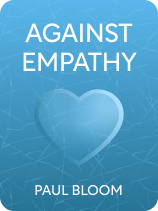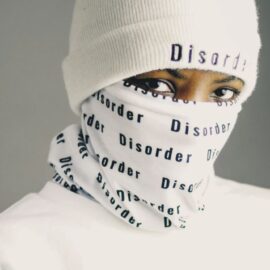

This article is an excerpt from the Shortform book guide to "Against Empathy" by Paul Bloom. Shortform has the world's best summaries and analyses of books you should be reading.
Like this article? Sign up for a free trial here.
What causes cruelty? What role does empathy play? Does empathy have a dark side that we must avoid?
There’s a common perception that cruelty is rooted in a lack of empathy. However, psychologist Paul Bloom argues that the real culprit is misused or misplaced empathy. He believes that empathy can motivate us to behave in ways that are unjust, irrational, violent, and cruel.
Keep reading to understand Bloom’s argument that violence and cruelty don’t result from a lack of empathy.
The Role of Empathy in Cruelty
Bloom characterizes empathy as unsuitable for guiding our decisions. One reason is that empathy doesn’t always prevent us from treating other people badly and, conversely, it’s not necessarily a lack of empathy that causes violence or cruelty.
It’s important to note that, in this context, Bloom is talking about emotional empathy as opposed to cognitive empathy. Emotional empathy involves feeling someone else’s emotions and simulating their experiences. Cognitive empathy entails a more distanced appreciation of someone else’s experiences; it involves understanding the emotions someone else is experiencing without experiencing them yourself. Bloom doesn’t oppose the practice of cognitive empathy.
So, what causes cruelty? Bloom writes that there are several theories. Some experts think of cruel behavior as a dysfunction of self-control. Others believe that violence is just part of our nature. Plus, we sometimes act cruelly in ways that are deliberate and consistent with our sense of morality. In all of these cases, it’s not a lack of empathy that causes violent behavior.
Some experts do theorize that a lack of empathy can lead to aggression by causing us to dehumanize and objectify other people. But Bloom argues that empathy isn’t a necessary component of our capacity to avoid dehumanization. In other words, we don’t need empathy to choose to treat other people as fully human.
Bloom also points out that, as we noted earlier, empathy (rather than a lack of empathy) may be implicated in some acts of violence. For instance, empathy may have played a part in motivating atrocities such as the genocide of Jewish people during the Holocaust. That’s because people were prompted to empathize with German children who had allegedly been abused by Jewish people to such an extent that they believed that cruel and violent acts, including genocide, seemed justifiable.
| Is Cruelty Related to a Lack of Empathy, or to Something Else Altogether? Researchers have suggested a number of different theories about what causes people to behave in cruel ways or to commit acts that we might call “evil.” As Bloom suggests, many factors beyond a lack of empathy have been blamed. In The Lucifer Effect, Philip Zimbardo—the psychologist known for conducting the notorious 1971 Stanford Prison Experiment that simulated a prison environment, with students playing prisoners and guards—suggests that circumstances can prompt psychologically healthy people to disengage from their normal sense of morality. In doing so, these circumstances can cause just about anyone to commit acts of evil. In other words, even though we think that our sense of morality is fixed, it can actually be heavily influenced by the situation and by variables such as identity cues, social pressures, anonymity, and dehumanization. Similarly, in Humankind, historian Rutger Bregman writes that when we commit acts of cruelty and evil, we typically do so as a result of drives like a fear of strangers, a need to fit in, or a desire to act in the interest of the greater good. Bregman suggests that we engage in war and violence not because of something innate to human nature—in fact, he argues that humans are fundamentally good—but because the shift from a nomadic lifestyle to life in permanent settlements created more violent conditions. Under these conditions, we sometimes act in cruel or violent ways when we’re driven to protect our group. Conversely, in The Science of Evil, psychologist Simon Baron-Cohen argues that when people are cruel to each other, it’s not because of evil but because of “empathy erosion.” In this state of mind, we don’t relate to other people as people but treat them as objects. Baron-Cohen writes that though the acts of violence and persecution that the Nazis perpetrated against the Jews were awful, they weren’t unique to the Nazis. Instead, they exemplify what happens when people become so focused on the pursuit of their own interests that they don’t consider how their actions will impact others. In Zero Degrees of Empathy, Baron-Cohen writes more about why we might experience a chronic lack of empathy. He theorizes that people who completely lack empathy fall into two groups. The first is people with autism spectrum disorders, who don’t have empathy but do have a systemizing nature that enables them to follow social rules. (Other experts disagree with this claim: They explain that while many people with autism may struggle with cognitive empathy, they may feel emotional empathy more strongly than others—and everyone on the spectrum is different.) The second group that lacks empathy, according to Baron-Cohen’s model, comprises people with personality disorders who are capable of inflicting great harm on others. Of course, not everyone who lacks empathy commits evil acts. But Baron-Cohen thinks that deficits in empathy are a more compelling explanation than “evil” for violence and cruelty. |
The Role of Empathy in Violence
One of empathy’s flaws is that it can motivate us to behave aggressively to protect someone who has been wronged. Bloom writes that empathy can even motivate us to engage in conflict on behalf of the victim of violence or injustice.
He offers the example of how white people in the American South empathized with white women allegedly raped by Black men and responded with lynchings and other forms of violence. (Shortform note: Philosopher Kathryn Norlock disputes Bloom’s view that lynchings of Black men occurred as a result of empathy for white women. She writes that, instead, lynchings were motivated by a desire to maintain white supremacy. Many lynchings occurred without the “excuse” of a rape allegation, and Norlock argues that Americans have historically not been particularly empathetic to women who have experienced rape.)
(Shortform note: Empathy plays a morally ambiguous role in our behavior, according to philosopher Fritz Breithaupt, who wrote The Dark Sides of Empathy. Like Bloom, Breithaupt believes that we sometimes behave cruelly not due to a lack of empathy but due to a misuse of it. He warns that empathy can polarize people, make them more suspicious of others, and activate extremist thinking. However, unlike Bloom, Breithaupt considers empathy more positive than negative: He writes that we can learn to use empathy judiciously and prevent it from being manipulated.)

———End of Preview———
Like what you just read? Read the rest of the world's best book summary and analysis of Paul Bloom's "Against Empathy" at Shortform.
Here's what you'll find in our full Against Empathy summary:
- How the conventional understanding of empathy gets it wrong
- How empathy can motivate us to act in unjust, irrational, and cruel ways
- Why we should practice rational compassion instead of empathy






